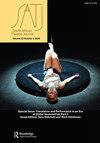Awarawari’rawa … performing statehood for unity in the Nigerian National Festival of Arts and Culture
IF 0.2
0 THEATER
引用次数: 0
Abstract
In 1970, when the first edition of the Nigerian National Festival of Arts and Culture (NAFEST) was organized, the primary aim was to provide a platform to stimulate national healing and unity for a country that had just emerged from a civil war. The festival is one of the mechanisms which the Federal Government of Nigeria devised to combat the challenges that cultural diversity poses to the country. The primary aim of NAFEST is to nurture a sense of belonging among Nigerians, through a showcase of the diverse arts and culture of Nigeria. In agreement with the argument of some scholars that mere celebration of festivals is inadequate to promote national unity among citizens, this article connects to the Yoruba Awarawari’rawa concept and the theory of statehood to seek the negotiation of unity in NAFEST activities. The paper establishes the NAFEST ideology and classifies the contents of the festival. It also identifies the channels through which the festival drives its set goal of national cohesion. The study employs the participant-observation and interview techniques as instruments for the harvest of data. It is our finding that the NAFEST ideology of statehood and national unity is consciously manifested in the various activities of the festival. The paper concludes by advocating for intensified collective actions of the festival organizers and participants, to increase grassroot participation at the festival, so as to ensure a wider reach for the NAFEST message of national unity.Awarawari 'rawa…在尼日利亚国家艺术文化节上表演国家团结
1970年,尼日利亚国家艺术文化节(NAFEST)首次举办,其主要目的是为这个刚刚从内战中走出的国家提供一个促进民族愈合和团结的平台。该节日是尼日利亚联邦政府为应对文化多样性给该国带来的挑战而设计的机制之一。NAFEST的主要目的是通过展示尼日利亚多样化的艺术和文化,培养尼日利亚人的归属感。一些学者认为,仅仅庆祝节日不足以促进公民之间的民族团结,本文同意这一观点,并结合约鲁巴Awarawari 'rawa概念和国家地位理论,寻求NAFEST活动中团结的谈判。本文确立了NAFEST的思想,并对节日的内容进行了分类。它还确定了节日推动民族凝聚力既定目标的渠道。本研究采用参与式观察法和访谈法作为数据收集的工具。我们发现,NAFEST的国家地位和民族团结意识形态在节日的各种活动中得到了自觉的体现。最后,本文主张加强节日组织者和参与者的集体行动,增加节日的基层参与,以确保更广泛地传播民族团结的NAFEST信息。
本文章由计算机程序翻译,如有差异,请以英文原文为准。
求助全文
约1分钟内获得全文
求助全文

 求助内容:
求助内容: 应助结果提醒方式:
应助结果提醒方式:


